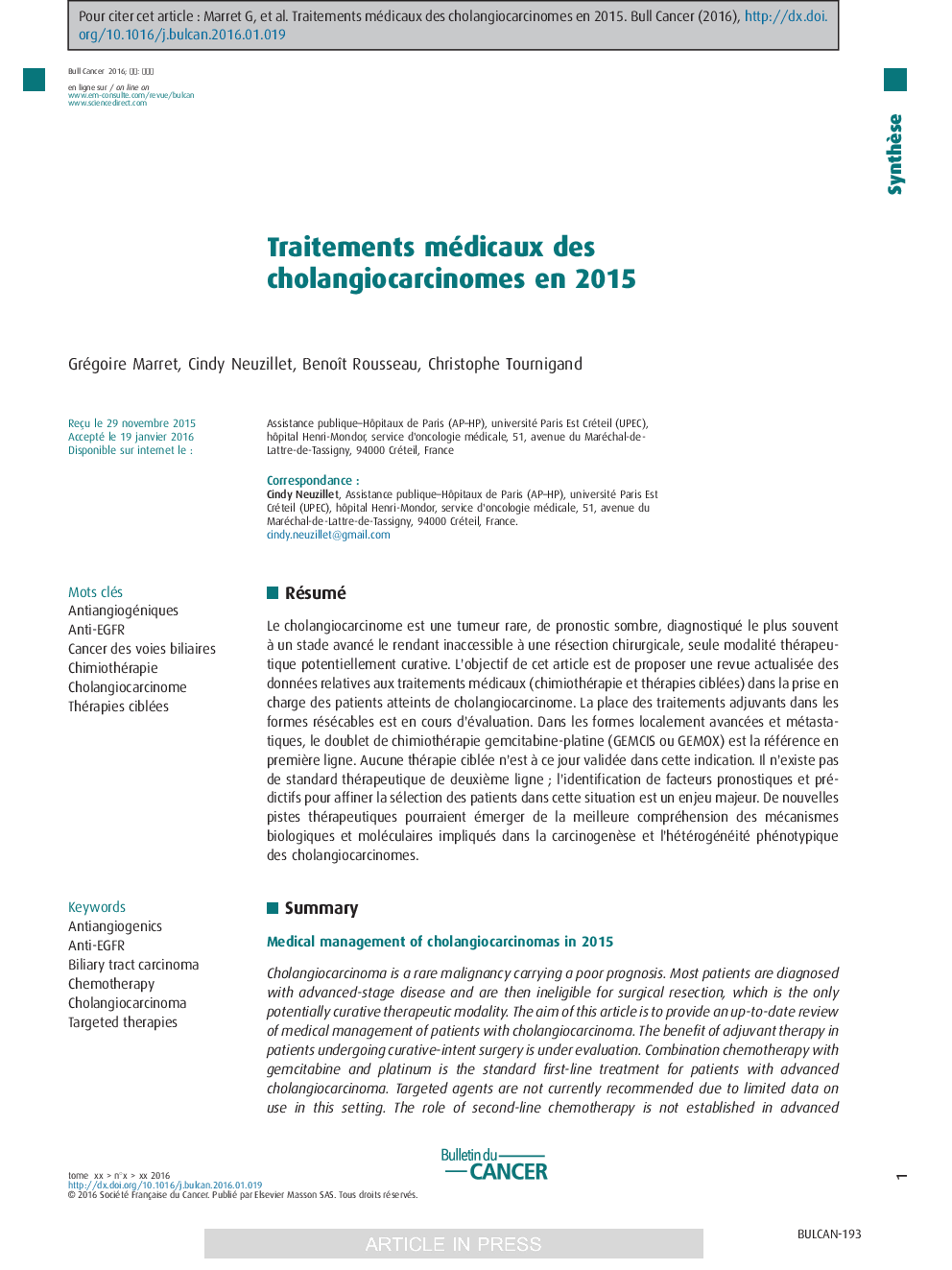| Article ID | Journal | Published Year | Pages | File Type |
|---|---|---|---|---|
| 6190118 | Bulletin du Cancer | 2016 | 11 Pages |
Abstract
Cholangiocarcinoma is a rare malignancy carrying a poor prognosis. Most patients are diagnosed with advanced-stage disease and are then ineligible for surgical resection, which is the only potentially curative therapeutic modality. The aim of this article is to provide an up-to-date review of medical management of patients with cholangiocarcinoma. The benefit of adjuvant therapy in patients undergoing curative-intent surgery is under evaluation. Combination chemotherapy with gemcitabine and platinum is the standard first-line treatment for patients with advanced cholangiocarcinoma. Targeted agents are not currently recommended due to limited data on use in this setting. The role of second-line chemotherapy is not established in advanced cholangiocarcinoma. Identification of predictive and prognostic markers to select patients who could benefit from second-line therapy is a major issue. A better understanding of the biological and molecular mechanisms underlying the carcinogenesis and the phenotypic heterogeneity of cholangiocarcinoma may path the way of new therapeutic strategies.
Keywords
Related Topics
Health Sciences
Medicine and Dentistry
Oncology
Authors
Grégoire Marret, Cindy Neuzillet, Benoît Rousseau, Christophe Tournigand,
